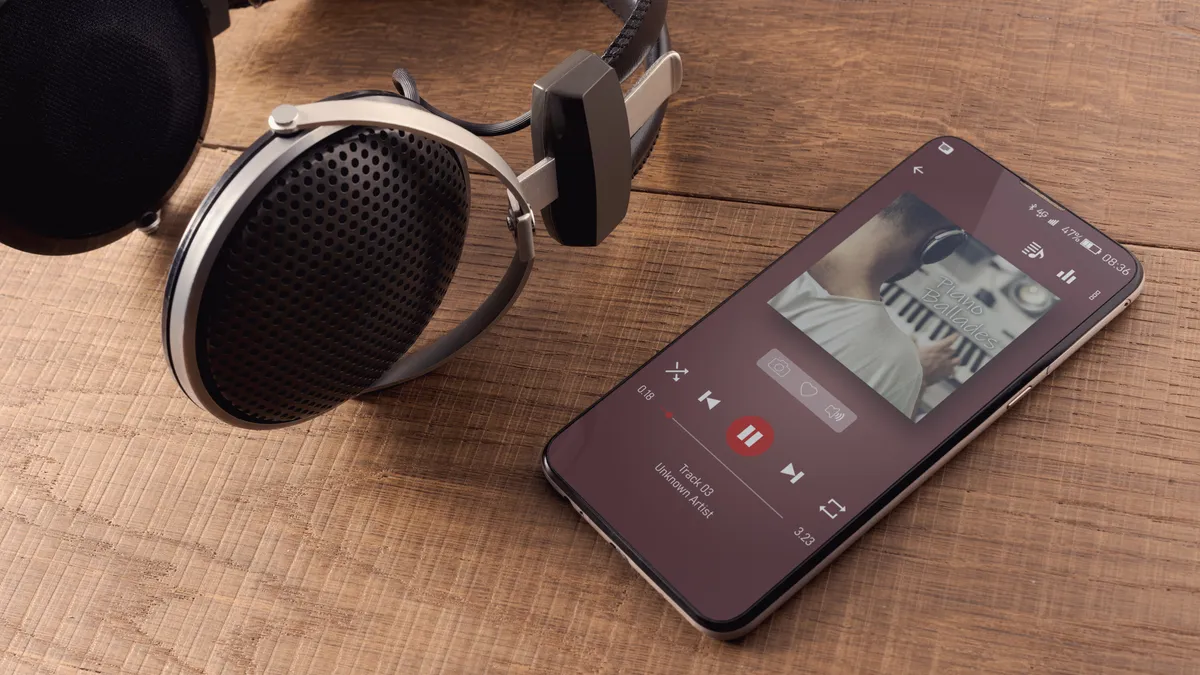Dive Brief:
- The European Union on March 4 hit Apple with one of its biggest fines ever, $1.95 billion for preventing music streaming companies from letting iOS users know, within their iPhone or iPad app, of cheaper ways to subscribe to their services.
- After investigating Apple for several years, the EU said, it found that the company “bans music streaming app developers from fully informing iOS users about alternative and cheaper music subscription services available outside of the app and from providing any instructions about how to subscribe to such offers.”
- The EU said it wanted the fine to be large enough to have a deterrent effect, but the tech giant has made clear it intends to make it hard for the regulatory body to collect. “Eight years of investigations have never yielded a viable theory explaining how Apple has thwarted competition in a market that is so clearly thriving,” the company said in a statement. “While we respect the European Commission, the facts simply don’t support this decision. And as a result, Apple will appeal.”
Dive Insight:
The action is the first time the EU has gone after Apple on competition grounds. The regulatory body has fined Google almost $3 billion on competition grounds, in separate cases, but up until now it has left Apple alone. Spotify, the most widely used music streaming service, triggered the action several years ago when it filed a competition complaint with the EU.
Daniel Ek, Spotify’s chief executive, says Apple has gotten away with too much for too long, The New York Times reported. “Without policymakers taking action, nothing will change,” Ek said in 2022 on X.
The EU has gone after Apple on other matters. In 2016, it charged the company with failing to pay some €13 billion in taxes to Ireland, at the time the largest corporate tax recovery ever sought. Ireland, which had given Apple tax benefits as a policy matter, disagreed with the EU that the taxes were owed, but the EU said the tax benefits were illegal. Apple appealed the decision with the European General Court in 2018 and won. That triggered an EU appeal with the European Court of Justice. A final judgment could come this year.
Apple says the timing of the EU’s music streaming fine is suspect, because the competition issues it raises were already slated to change later this week as part of the company’s compliance with a forthcoming law, called the Digital Markets Act.
“The European Commission is issuing this decision just before their new regulation — the Digital Markets Act (DMA) — comes into force,” Apple says in its statement. “Apple is set to comply with the DMA in days, and our plans include changes to the rules challenged here. What’s clear is that this decision is not grounded in existing competition law. It’s an effort by the Commission to enforce the DMA before the DMA becomes law.”
The DMA only applies to the handful of large tech companies that dominate digital marketplaces. That list includes Apple, Amazon and Google. Under the law, Apple will have to open its iOS devices to competing app stores and allow app makers to accept payments directly if they want.
Critics have said Apple’s changes don’t comply with the spirit of DMA, but it’ll be up to the EU to decide that.
Among other things, Apple is allowing for the first time alternative app stores to operate on its phones and letting apps use alternative payment systems, but it’s also adding fees in such a way that it would continue to get a cut of app developers’ subscription revenue if they use the alternative services. it’s also doing away with its restriction on letting companies talk directly to their customers, within their apps, about cheaper ways to subscribe. That addresses the EU’s main competition criticism of the company.
At its core, the EU has no case against it, Apple says. Despite the years of investigation, the EU has found no evidence of consumer harm or anti-competitive behavior. In fact, EU consumers have more choice than ever in digital music, the company says.
In its statement, Apple took repeated swipes at Spotify, a company whose path to becoming the dominant music streaming service stems in part from its reliance on Apple’s platform and technical services that it received at no cost.
“Free isn’t enough for Spotify,” Apple said. “They also want to rewrite the rules of the App Store — in a way that advantages them even more.”
In its statement, Spotify says skepticism of Apple paying the fine is warranted.
“While we appreciate the EC addressing this important case, we also know that the details matter,” the company says. “Apple has routinely defied laws and court decisions in other markets. So we’re looking forward to the next steps that will hopefully clearly and conclusively address Apple’s long-standing unfair practices.”











